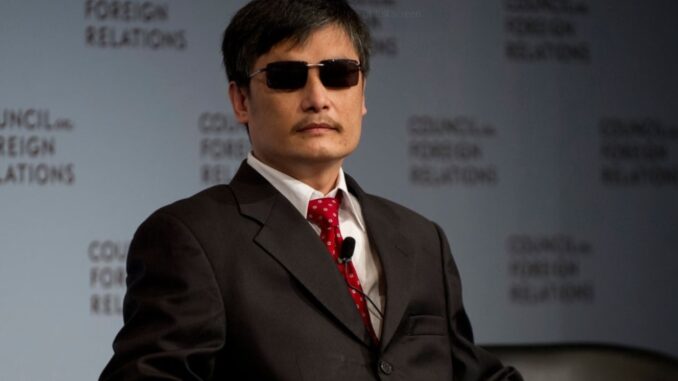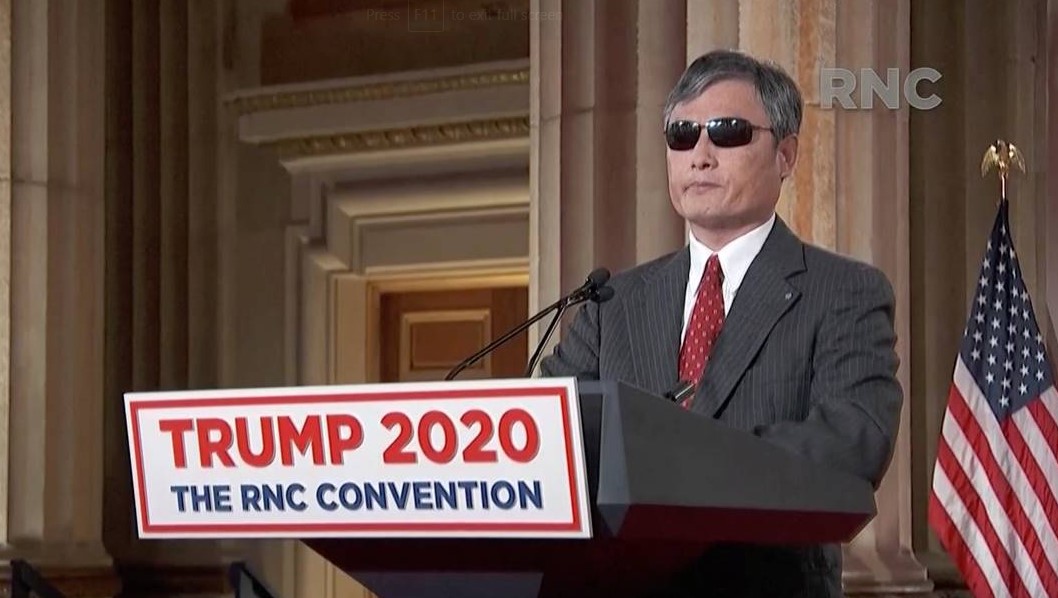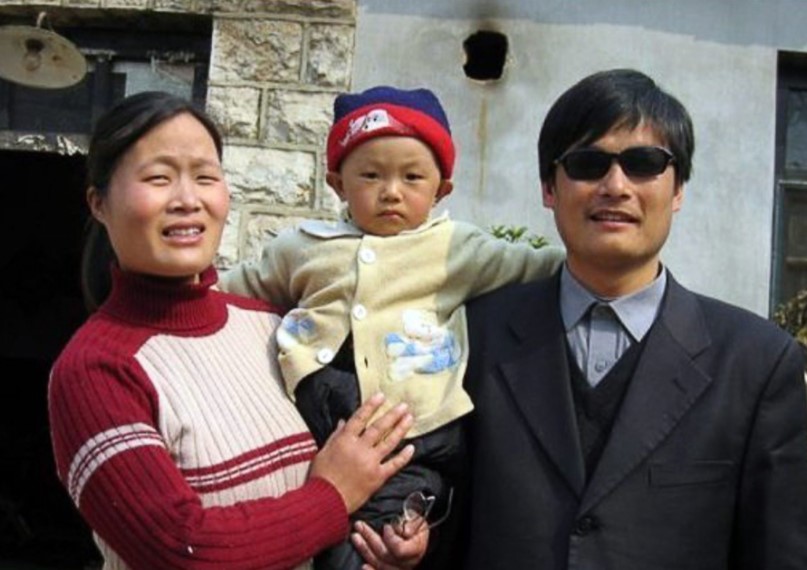
Chen Guangcheng is a Chinese civil rights activist. Chen has worked on human rights issues in rural areas of the People’s Republic of China. He is described as a “barefoot lawyer” who advocates for women’s rights, land rights, and the welfare of the poor. His activism started when he complained about the incorrect taxes levied on his family as he was disabled. He soon petitioned for other people with disabilities. He gained international attention after he was arrested and prisoned for filing a lawsuit against the local government for the excessive enforcement of the one-child policy. He served 4 years in prison. He later moved to the United States with his family.
What is Chen Guangcheng Famous For?
- Described as “barefoot lawyer” who advocates for women’s rights, land rights, and the welfare of the poor.
- Best Known for accusing people of abuses in official family-planning practices, often involving claims of violence and forced abortions.
Where is Chen Guangcheng From?
Chen Guangcheng was born on 12 November 1971. His birth place is in Dongshigu, Yinan County, Shandong in China. He holds Chinese nationality. He is the youngest of five brothers of a peasant family. He belongs to Asian ethnicity. He lost his sight when he was six months old due to a fever that destroyed his optical nerves. He grew up in a Buddhist family. His father worked as an instructor at a Communist Party school.
He began attending school as a grade one student at the Elementary School for the Blind in Linyi city in 1989. He was 18 years old when he joined the school. He then enrolled at the Qingdao High School for the Blind in 1994. Following high school, he earned a position at the Nanjing University of Traditional Chinese Medicine in 1998. He specialized in acupuncture and massage from Nanjing. Following university education, he returned to his home region, where he started working as a masseur in the hospital of Yinan County.

Source: @indianexpress
Chen Guangcheng Activism
- Chen self-taught himself in the law.
- he first petitioned authorities in 1996, when he traveled to Beijing to complain about taxes that were incorrectly being levied on his family (people with disabilities). After he succeeded in the complaint, he petitioned for other disabled people.
- Soon he received funding from a British foundation and he became an outspoken activist for disability rights within the China Law Society.
- He rose to more prominence after he advocated for an elderly blind couple whose child suffered from paralysis and had been paying all of the regular taxes and fees. Chen took the case to the court and won it as well.
- He petitioned central authorities in Beijing to end the “two-filed system” in Chen’s village in 1997.
- He then petitioned against a paper mill in his village which had been dumping toxic wastewater into the Meng River, destroying crops, harming wildlife, as well as humans. The petition was successful and the paper mill was suspended. The British government provided 15,000 pounds to build deepwater well, irrigation systems, and water pipelines.
- The villagers from Dongshigu filed a petition to the village government in 2004 demanding that they release the village accounts which hadn’t been made public for over ten years and address the issue of illegal land requisitions. The case was eventually taken to the Qi’nan County Court.
- He garnered international attention in 2005 after he filed a class-action lawsuit against authorities in Linyi, Shandong province for the excessive enforcement of the one-child policy.
- Due to this case, he was placed under house arrest from September 2005 to March 2006. He was formally arrested in June 2006 and sentenced to 4 years and 3 months in prison for “damaging property and organizing a mob to disturb traffic”.
- After serving his full sentence, he was released in 2010 but was kept on house arrest at his home in Dongshigu village.
- This case garnered Chen, international attention. The U.S. State Department, the British Foreign Secretary, Human Rights Watch and Amnesty International issued appeals for his release.
- While still under house arrest, Chen escaped and fled to the US Embassy in Beijing in April 2012. After negotiations with the Chinese government, he was reportedly allowed to travel to the United States to study. US government granted Chen and his family visas on 19 May 2012 and the family moved to New York City.
- He was offered a visiting scholar at New York University.
- His memoir, The Barefoot Lawyer was published in March 2015.
- He published an editorial in the New York Times on 29 May 2012 where he criticized the Chinese government and the Communist Party for the “lawless punishment inflicted on himself and his family over the past seven years.”
- He accepted an offer from the Witherspoon Institute in Princeton, New Jersey in October 2013. He became a Distinguished Senior Fellow in Human Rights at the Witherspoon Institute.
- He also became the Visiting Fellow of the Institute for Policy Research and Catholic Studies at the Catholic University of American and a Senior Distinguished Advisor to the Lantos Foundation for Human Rights and Justice.
- He made his first public appearance as a Distinguished Senior Fellow at the Witherspoon Institute on 16 October 2013, when he delivered a public lecture entitled “China and the World in the 21st Century: The Next Human Rights Revolution” at Princeton University.
- He spoke at the 2020 Republican National Convention in August 2020.

Source: @nytimes
Chen Guangcheng Married
Chen Guangcheng met his future wife Yuan Weijing in 2001. Yuan was called into a radio talk show to talk about her difficulties in landing a job after graduating from the foreign language department of Shandong’s Chemistry Institute. Chen had listened to that interview and contacted Yuan. Chen discussed hardship as a blind man and earning a minimum wage. Yuan was moved by their meeting. The couple eventually eloped in 2003. Yuan gave birth to their first child, Chen Kerui in 2003. The couple welcomed their second child, a daughter, Chen Kesi in 2005. The birth of their second child violated China’s one-child policy.
Leave a Reply